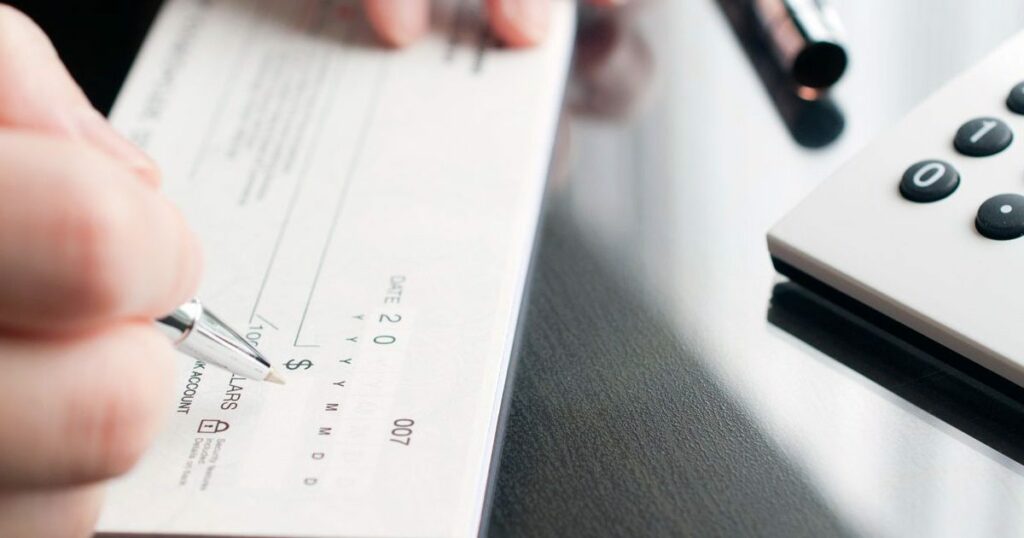
Monthly cheques… every property manager’s nightmare
Every month, it’s the same ritual. Marie-Josée Ricard, Manager of Groupe immobilier Gescard, receives cheques that are signed in red ink or unsigned. This is an incredible waste of time for someone who manages more than 500 buildings.
Marie-Josée must, therefore, contact her clients again and they promise to issue a new cheque. Around the 15th of each month, she always sends a reminder to those whose payments are late.
“I have no issues with people who pay by pre-authorized debit or send post-dated cheques,” she says.
Her company recently asked a group of condominium co-owners to pay by pre-authorized payment. More than half of these owners, about 40 out of 88, said they preferred paying by cheque. “When people write a cheque,” she notes, “they feel like they have more control over their finances.”
Flexibility
Luc Riverin, who works at the property management firm Double RR, believes he has solved the problem. “With Otonom Solution,” he says, “over 85% of our payments are now via pre-authorized transfers. Someone can call me at 10 AM on the first day of the month and ask to delay the transfer.”
He has come to agreements with tenants that involve depositing part of the payment at the beginning of the month and the remainder halfway through the month. “By doing this, we avoid the fees caused by returned cheques and we help out someone who is in a bind while ensuring that the owner is paid,” he says.
Mr. Riverin advises against accepting cash, however. This eliminates the possibility of a renter leaving before the end of the month. Before renting a unit, Luc always pays $55 for a credit check. “My maxim is simple,” he says. “I prefer to leave an apartment empty than to rent it to the wrong person.”
Over the past 12 years, he has seen an improvement. “Barely 2% of tenants fail to pay their rent for reasons related to personal problems such as divorce, job loss, etc.,” he explains
The disappearance of cheques
Ms. Ricard is convinced that cheques will soon become a thing of the past. More and more business people and companies are using smart solution sites that eliminate paper transactions.
Studies show that the use of cheques has decreased by 7% across Canada. By 2020, more and more companies and government offices across the country will opt for electronic payments,” reports Jesse Champagne, a consultant at DCR Strategies.
“Electronic payments eliminate significant costs and cut down on time and expense associated with returned or fraudulent cheques,” he explains.
Marie-Josée Ricard and the thousands of real estate managers spend both time and energy following up with renters and chasing late payments. Many renters come up with a pretext or reason to postpone paying what they owe. But that’s another story.
The statistics
Using cheques in our digital age harks back to another era. The consumer must first buy a stamp, find a mailbox or post office nearby, and mail the cheque. Just imagine the time lost. And as we all know, time is money. Below are a few figures that illustrate the astronomical costs associated with the use of cheques.
Up to $50: ordering a cheque book can cost $15 or $25 and even up to $50.
$1.05: the price of a stamp in Canada. Electronic payments eliminate postage fees.
75% of companies in Canada have had a fraudulent cheque payment experience, according to JP Morgan.
$50 million: the cost of replacing lost or stolen cheques..
$0.82: the cost of producing a cheque..
$0.13: the cost of an electronic payment.
Share :
D’autres articles
 How to save time and resources with streamlined supplier payment approvals ⏱️December 12, 2024
How to save time and resources with streamlined supplier payment approvals ⏱️December 12, 2024 From manual to digital: Why it’s time to upgrade your condo management tools 💻December 9, 2024
From manual to digital: Why it’s time to upgrade your condo management tools 💻December 9, 2024 Why effective supplier payment management is essential for condo managers 🤝November 12, 2024
Why effective supplier payment management is essential for condo managers 🤝November 12, 2024 The hidden costs of manual payment tracking for condo corporations 💸October 30, 2024
The hidden costs of manual payment tracking for condo corporations 💸October 30, 2024 5 common mistakes in condo payment management and how to fix them fast ! 🎯October 29, 2024
5 common mistakes in condo payment management and how to fix them fast ! 🎯October 29, 2024